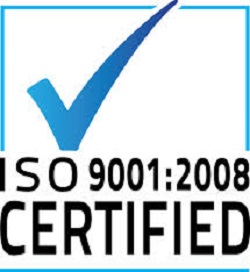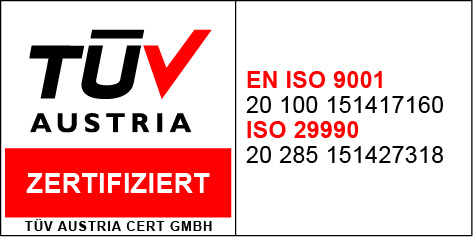


Investment Company — a company (corporation, business trust, partnership, or limited liability company) that issues securities and is primarily engaged in the business of investing in securities. The three basic types of investment companies are mutual funds, closed-end funds, and unit investment trusts. Load — see "Sales Charge." Management Fee — fee paid out of fund assets to the fund's investment adviser or its affiliates for managing the fund's portfolio, any other management fee payable to the fund's investment adviser or its affiliates, and any administrative fee payable to the investment adviser that are not included in the "Other Expenses" category. A fund's management fee appears as a category under "Annual Fund Operating Expenses" in the Fee Table. Market Index — a measurement of the performance of a specific "basket" of stocks considered to represent a particular market or sector of the U.S. stock market or the economy. For example, the Dow Jones Industrial Average (DJIA) is an index of 30 "blue chip" U.S. stocks of industrial companies (excluding transportation and utility companies). Mutual Fund — the common name for an open-end investment company. Like other types of investment companies, mutual funds pool money from many investors and invest the money in stocks, bonds, short-term money-market instruments, or other securities. Mutual funds issue redeemable shares that investors purchase directly from the fund (or through a broker for the fund) instead of purchasing from investors on a secondary market. NAV (Net Asset Value) — the value of the fund's assets minus its liabilities. SEC rules require funds to calculate the NAV at least once daily. To calculate the NAV per share, simply subtract the fund's liabilities from its assets and then divide the result by the number of shares outstanding. No-load Fund — a fund that does not charge any type of sales load. But not every type of shareholder fee is a "sales load," and a no-load fund may charge fees that are not sales loads. No-load funds also charge operating expenses. Open-End Company — the legal name for a mutual fund. An open-end company is a type of investment company Operating Expenses — the costs a fund incurs in connection with running the fund, including management fees, distribution (12b-1) fees, and other expenses. Portfolio — an individual's or entity's combined holdings of stocks, bonds, or other securities and assets. Profile — summarizes key information about a mutual fund's costs, investment objectives, risks, and performance. Although every mutual fund has a prospectus, not every mutual fund has a profile. Prospectus — describes the mutual fund to prospective investors. Every mutual fund has a prospectus. The prospectus contains information about the mutual fund's costs, investment objectives, risks, and performance. You can get a prospectus from the mutual fund company (through its website or by phone or mail). Your financial professional or broker can also provide you with a copy. Purchase Fee — a shareholder fee that some funds charge when investors purchase mutual fund shares. Not the same as (and may be in addition to) a front-end load. Redemption Fee — a shareholder fee that some funds charge when investors redeem (or sell) mutual fund shares. Redemption fees (which must be paid to the fund) are not the same as (and may be in addition to) a back-end load (which is typically paid to a broker). The SEC generally limits redemption fees to 2%. Sales Charge (or "Load") — the amount that investors pay when they purchase (front-end load) or redeem (back-end load) shares in a mutual fund, similar to a commission. The SEC's rules do not limit the size of sales load a fund may charge, but NASD rules state that mutual fund sales loads cannot exceed 8.5% and must be even lower depending on other fees and charges assessed. Shareholder Service Fees — fees paid to persons to respond to investor inquiries and provide investors with information about their investments. See also "12b-1 fees." Statement of Additional Information (SAI) — conveys information about an open- or closed-end fund that is not necessarily needed by investors to make an informed investment decision, but that some investors find useful. Although funds are not required to provide investors with the SAI, they must give investors the SAI upon request and without charge. Also known as "Part B" of the fund's registration statement. Total Annual Fund Operating Expense — the total of a fund's annual fund operating expenses, expressed as a percentage of the fund's average net assets. You'll find the total in the fund's fee table in the prospectus.
|
Join our Linkedin Group
The GAFM ® Board is the 1st Graduate Certification Body to Become Accredited and Certified for: ISO 9001 Quality and ISO 29990 Training in the World. GAFM ® owns the former AAFM ® Certifications and Programs
|

Home Certifications Board Recognition Requirements Providers About Contact Us Contact Apply AFAPPC GetCertifiedPPC Benefits Chartered Wealth Manager News How To Use Stock Markets Training Calendar FINRA Application Reg. Payments About Old Events CWM Training Program News UBT University Business Technology Saudi Arabia Saudi Arabia - Certification Training Programs 2017 - University Business & Technology In House Training Speakers CEO Message Chartered Certified Economist Certified Financial Analyst FINRA SEC Chartered Wealth Manager Training Verify Member Indonesia Malaysia Guides Informa GAFM Guides Jamaica Qualifying Degrees Global Advisors Membership Mission Ethics Governmental Recognition Links Handbook mfm Financial Planner Program Chartered Economist CCO Higher Institute IP List Become Provider Management Consulting Jobs AAPM TUV Accreditation CWM Chartered Wealth Manager Terms Approved Fin Analyst Degrees Copy of Certification Economics Certification Economics Degrees Management Degrees Finance Degrees Accounting Degrees Exams Renew Certification Continuing Ed Awards Sample Accreditations Honor Society Trademarks Careers Government Jobs Complaint Site Map Mentz George Mentz Lawyer Mentz George Colorado USA Speaker Consultant AFA ® Accredited Financial Analyst Certification CTEP ® Trust and Estate Certification CIPM ® Certified International Project Manager CWM ® Chartered Wealth Manager ® AMA ® Management Accountant Certification AMC ® Management Consulting Certification MMC ® Management Consulting Certification Book







